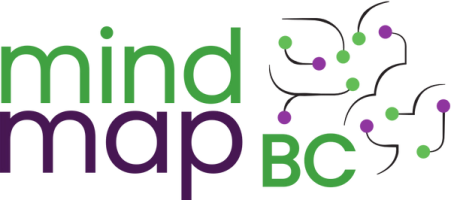Caroline Miege Counselling Services
Summary
Individual counselling
FNHA
CVAP
Sliding Scale Available
 Wheelchair Accessible
Wheelchair Accessible- Sensory-friendly
2S/LGBTQ+ Affirming
Seniors
- In-person
Remote services
Telephone
I work with youth and adults, focusing on treatment of trauma/PTSD, grief and loss, anxiety and depression, stress management, anger management, women's issues, self esteem, relationship issues, and career/workplace issues. I have specialized experience and training working with people who are neuro-divergent (some examples include: mental health challenges, ADHD, people on the autism spectrum), helping to navigate school, community and workplace. I am able to support people through major life transitions such as chronic illness and losses of all kinds.
Want to learn more about this service’s work with Two-Spirit, trans, LGBQ+ people?
We invite all service providers listed on MindMapBC to answer the following questions. These questions were developed in collaboration with community members, researchers, and mental health and other service providers. They're intended to help us understand what a service provider or organization is doing to affirm and support sexual and gender diverse service users.
See below for responses for this listing.
Want to learn more about our screening questions and filters?
1) Are the forms used in your practice inclusive of various sexual orientations and gender identities (e.g. opportunities to fill in different pronouns etc.)? Yes.
2) Do you collect and use preferred names (rather than legal names) for all
communications? Yes
3) Do you and your colleagues have experience providing services that support clients with navigating gender dysphoria*? *TransCareBC describes gender dysphoria as a term "intended to describe the distress some trans people experience with relation to their gender identity, particularly if they would like to transition but have not yet done so." Yes.
4) Please tell us how equipped you feel to support a client in determining if/when their mental health symptoms are related to their gender-related experiences or other factors? I have a thorough intake that goes over mental and physical health history. When appropriate I use a number of different mental health screening tools to assist with clarification. I seek professional clinical supervision when needed.
5) Do you/your colleagues understand the difference between gender dysphoria and mental health conditions/symptoms that are unrelated to gender dysphoria or distress? Yes.
6) Do you and your colleagues have experience working with people who identify as living with a disability or chronic illness? Please tell us more about your experience and any training you have received. My 30+ years of social work practice has focused on a client group that experience a range of disabilities/chronic illness. I have done specialized training in order to better assist/understand how to best support (pain management, interpreting psycho-educational and neuro-psych assessments, head injury support, ADHD Clinical Services Provider (ADHD-CCSP), Certified Autism Spectrum Clinical Specialist (ASDCS).
7) Are you and your colleagues comfortable asking relevant questions about gender identity and sexual orientation? Yes.
8) Do you offer Indigenous 2SLGBTQIA+ specific resources, for example Indigenous Elders or Knowledge Keepers? No – but I am able to make referrals within the community.
9) Do you and your colleagues ask clients about pronouns and use them appropriately? Yes.
10) Are you and your colleagues aware of what specific barriers may exist for Two-Spirit, queer, or trans Indigenous individuals accessing your services? Yes.
11) Are you and your colleagues aware of what specific barriers may exist for 2SLGBTQIA+ individuals accessing your services? Yes.
12) Are you and your colleagues aware of what specific barriers may exist for trans individuals accessing your services? Yes.
13) Are there clear anti-discrimination policies that include gender identity, gender expression, and sexual orientation in your organization or practice?
I am a sole proprietor and as typical for such a practice there are no written policies. However, on my website I make it clear that I strive to provide an anti-oppressive and culturally responsive care.
14) Are all individuals involved in service provision actively engaged in decolonizing their practices and/or organization? If yes, please type below what actions you and/or your organization are taking. I am approaching my practice with humility and constant education. This education looks like reading literature about decolonization as well reaching out to local indigenous organizations that have teachings. I actively learn about the history of colonization on the land where my clients are from.
15) Are all individuals involved in service provision actively engaged in anti-racist practices, policies, and systems in their care model? Yes.
Address
5090 11 th St NE
Salmon Arm, BC
V1E 3N3
Last updated: April 2, 2025
Request changes —

